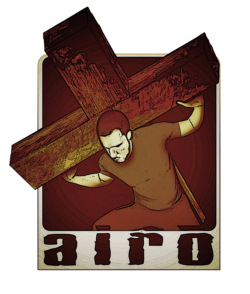In the last article, The Fellowship in Evangelism, I took a close look at Paul’s letter to the Philippians and showed how the evangelist is not only to preach the Gospel, but he is to love and serve the Body of Christ. I might have made it part one of this article, because it really does address the evangelist’s commitment to the local church.
As I better understand my role as an evangelist, I have a greater desire to be faithful to Christ’s church. To not only build Christ’s church, but to love her by serving and equipping her for the work of the ministry. Ultimately, this will lead me to be more faithful to God’s Word, and thus to God Himself.
Over the summer, I came across two sermons from John MacArthur that I revisited this week. From the first sermon, titled What in the World Is the Church to Be? Part 1, I will quote a brief excerpt as an introduction to the second sermon, which I have found to be so helpful in understanding the biblical definition and role of the evangelist.
Preach the Gospel and Teach Sound Doctrine
MacArthur notes,
Now, Timothy and Titus were two evangelists. An evangelist in the early church was a church planter. He went to an area where Christ was not named. He won some people to Christ and established a congregation. He stayed with that congregation often as long as a year, maybe even longer, two or three years, until he had taught them sufficiently so that some of them had matured. When some of them had matured, he would then appoint elders in that city to care of that church and to teach in that church, to minister in that church. Then he would move to another place where Christ was not named. Win some more people to Christ, establish another congregation, stay there for a few years, ordain elders in that city to carry it on. Go to another place, and he just kept doing that. That was the work of an evangelist. He was a church planter.
Now, Timothy and Titus did that. They also occasionally did the work of pastor teacher, which was instructing the people. Even an evangelist was called to do that…
…The ministry of the church is to teach sound doctrine…To teach sound doctrine. Titus 2:1, see, here’s another instruction to the one who’s planning a church,
But speak thou the thing which become sound doctrine.
That’s what the church is all about. These evangelists were to move into the church with sound doctrine. That’s the basis of everything. That’s what we are to do.
So teaching sound doctrine is the basis of everything we do. Yes, the evangelist proclaims the Gospel, but he also preaches the Word and equips the saints for the work of the ministry. That is the biblical role of the evangelist; I desire to be faithful to that calling.
Preach the Word and Build Up the Church to Maturity
Now let’s dig a little deeper. In the second sermon I will share with you, titled The Gifted Men, Part 2: Evangelists, Pastors, Teachers, MacArthur looks at the different roles of the evangelist found in Scripture. While some evangelists may plant churches and others move in to existing churches, all evangelists were involved in building up the church. They all taught sound doctrine, equipped and mobilized the saints to proclaim the Gospel, and were intimately involved in the maturation of the local church. There’s so much meat in the entire excerpt below, please continue reading.
Here’s MacArthur,
Let’s find out what an evangelist is. Ephesians 4:11,
And he gave some, apostles; and some, prophets; and some, evangelists.
Now we think of an evangelist…it isn’t too hard to define him. If I were to ask you to give me a definition of an evangelist you would probably say, “An evangelist is somebody who goes around preaching the gospel.” You’re right. Some say the derivation of the word comes from soap sellers. There were guys who used to market soap when they first made it. And the way they would do it was go downtown, find a dirty guy, and haul him out on the street corner, and wash him. And they’d say, “That’s what the product can do.” And so people called people who preached the gospel soap seller cause they were cleaning up the insides. Standing on the corners, proclaiming the gospel. That, basically, is what an evangelist is, one who proclaims good news, the preacher of the gospel.
Now the term only occurs three times in the New Testament – only three. Once, here, in Ephesians 4:11, and it’s a collective group. There were a group of them given to the church. After the apostles and prophets, evangelists. I’m convinced that the evangelists have taken over the role of the apostles. They are the more itinerate ministers. It doesn’t mean that they’re always on the move. Paul could stay in one place for three years, couldn’t he, as an apostle? And Timothy, we’ll see, as an evangelist stayed in many places for lengths of time. But their ministry is a moving ministry. Their ministry is an itinerate ministry. They are on the move, moving around, preaching the gospel. Now that’s a group, we see, from 4:11, “A collective group of people.”
Now let’s look at 21:8 of Acts because that’s the second place the term is used. Act 21 verse 8…this is what it says…
And the next day we that were of Paul’s company departed, and came to Caesarea: and entered the house of Philip the evangelist, who was one of the seven.
Philip was originally a deacon, one of those chosen in Acts 6. And now we find that he is called Philip the evangelist. Now here we meet an evangelist. Now this is very helpful cause if we want to know what an evangelist is, we ought to follow one around for a while. So let’s follow Philip a little bit. Go to Acts 8. Let’s find out just exactly what an evangelist was involved in, Acts chapter 8 verse 4,
Therefore they that were scattered abroad and went every where preaching the Word.
Now that’s an evangelist, “Preaching the Word.” I think it’s important to remind many evangelists’ that it’s important to preach the Word, not just read the text, depart from the text, and tell 10 stories, and give an invitation. I think to preach the Word is what it says there.
Now,
Then Philip went down to the city of Samaria, and preached Christ unto them.
That’s evangelism. Philip went to a city, preached Christ. There is an example of an evangelist at work. He is a preacher of Christ. He is endeavoring to win people. Verse 6,
And the people with one accord gave heed to the things which Philip spoke.
Stop there. Now there you have the basic identity of an evangelist. Now, of course, Philip had the ability, also, to do miracles because there was no written Scripture in those days, and in order to confirm to the people that what he was saying was true, God gave those evangelists, in that day, miraculous ability. Now further…look at verse 35…
Then Philip opened his mouth, and began at the same Scripture, and preached unto Him Jesus.
Here you have a totally different situation for Philip. In the first part of Acts 8 he is preaching Jesus to a crowd. In the middle of Acts 8 he is preaching Jesus to one man. It needs to be stressed that an evangelist can be affective with groups, equally affective with individuals. Somebody who is given to the church for the purpose and energized to the accomplishment of winning people to Jesus Christ. All right?
Now I want you to look at the third use…verse 40, incidentally, says,
Philip was found at Azotus: and passing through preached in all the cities, till he came to Caesarea.
An itinerate preacher of the gospel can be an evangelist. All right, 2 Timothy 4 to 5…here’s the third and last use of this term in the New Testament. uongolistus. Second Timothy 4:5, now Paul says to Timothy…you may not have seen Timothy in this light, so this might be helpful for you…2 Timothy 4:5,
But watch thou in all things…keep alert Timothy…endure affliction, do the work of the an evangelist, make full proof of thy ministry.
Paul says to Timothy, “In order to make full proof of your ministry, you need to do the work of an evangelist,” which leads me to believe that Timothy was, in fact, an evangelist. So you have a collective group of evangelists, Ephesians 4:11. You have Philip, an example of an evangelist. You have Timothy, another example of an evangelist. Surely there were many more, and there have been many more in the history of the church, and we have evangelists today. The New Testament evangelist is the one who proclaims the good news…
…So what is an evangelist to do? Primary task, preach the gospel. Now watch this. Philip is an example of preaching the gospel in areas that are new, brand new territory where Christ is not named, and starting a church. Timothy, the second illustration of an evangelist, is an illustration of a man who went to already established assemblies and mobilized those people to evangelize their city. See the difference? You can have an evangelist who’s traveling as a missionary, founding churches, planting churches, or you can have an evangelist who comes to a local assembly when it is small, has the ability to mobilize those people to reach out, to proclaim Christ, to capture that community, to win them to Jesus. That also is the work of an evangelist.
Some of you have had the experience of being in a church where a man came and did that, but if he stayed too long, and never got past the stage of evangelizing, then you ran into trouble. And maybe in God’s plan it would have been wiser for him to go to a new territory, so that a pastor/teacher could come in and take up the work of continuing to mature the saints on a long-range basis cause that’s the distinction.
So this is the work of winning people to Christ and building them up. It isn’t just floating in for a week and floating out. Paul says, “Timothy, do the work of an evangelist.” You say, “Well what does an evangelist do? He just floats around and does this and that and moves real quick?” No. An evangelist, number one, is a church planter. He wins people to Christ, plants the church. It may well be that Titus was also an evangelist. And Paul said to Titus, “Establish elders, or ordain elders in each city.” He would have to go in, build the saints to the place of maturity, and even appoint the elders, which means he would’ve had to have stayed until they were mature enough to rule themselves.
Paul says to Timothy…for example…1 Timothy 4:13…here’s Timothy, the evangelist, this is what he says to him, “Till I come, give attendance to reading, exhortation, doctrine.” You know what that means? “Timothy, until I get there, read the text, explain the text and apply it, be an expository preacher, a teacher.” “Give yourself holy to them, take heed to doctrine”…verse 16. Verse 6, “Nourished up in the word of faith and good doctrine.” Second Timothy 2:2, “Teach faithful men who shall be able to…what?…teach others also.” Preach the word. What does an evangelist do? He teaches…he preaches…he teaches…he preaches. An evangelist is not somebody who can just preach sermons and get people to do something…
…All right, evangelistic work then can be carried on in places where Christ is not named or it can be carried on in places where there is already established group of believers trying to win a city. But it’s the ministry of preaching the gospel and teaching the Word of God. No less teaching than anybody else does. “Because the ministry…Ephesians 4:11…apostles, prophets, evangelists, teaching pastors, is for the…what? Perfecting of the saints.” And an evangelist is to mature the saints just as much as anybody else…
…And there are other men given to the body of Christ whose only vision is the world of lost people. See? And that’s as God has designed it. And the teaching shepherd doesn’t sit back and criticize the evangelist, nor does the evangelist criticize the teaching Shepard. If both are operating on a biblical fashion then they complement according to God’s design. And God needs them in America, and God needs them in Canada and Mexico, and God needs them across the seas because this is how He builds His church in any land. You say, “Where do the missionaries fall?” They fall into both categories. Some are teaching pastors, some are evangelists.
And so we see Christ gives to the church, apostles and prophets, for foundation, Revelation, confirmation, to establish the church with solid doctrine. And then he gives, in our modern times, to the church, evangelists and pastor/teachers for evangelism, win people, edify, build people, exhortation, make sure they maintain their behavior, to equip the church with affective ministry. To build the body. These are the gifted people Christ has given to His church. Now that’s God’s design.
Final Thoughts
It’s my joy to share these truths with you, and I pray that if you truly sense that God would have you serve as a full-time evangelist in the ministry, you would prayerfully consider whether you are being faithful to Scripture. It has been a wake up call for me, but one that I delight in knowing that I am being obedient to the Lord. I hope you’re able to listen to the second sermon in full here.
Soli Deo Gloria!
(I wrapped up this series with one additional article. Please check out Evangelism and the Evangelist)




Posted on October 24, 2012